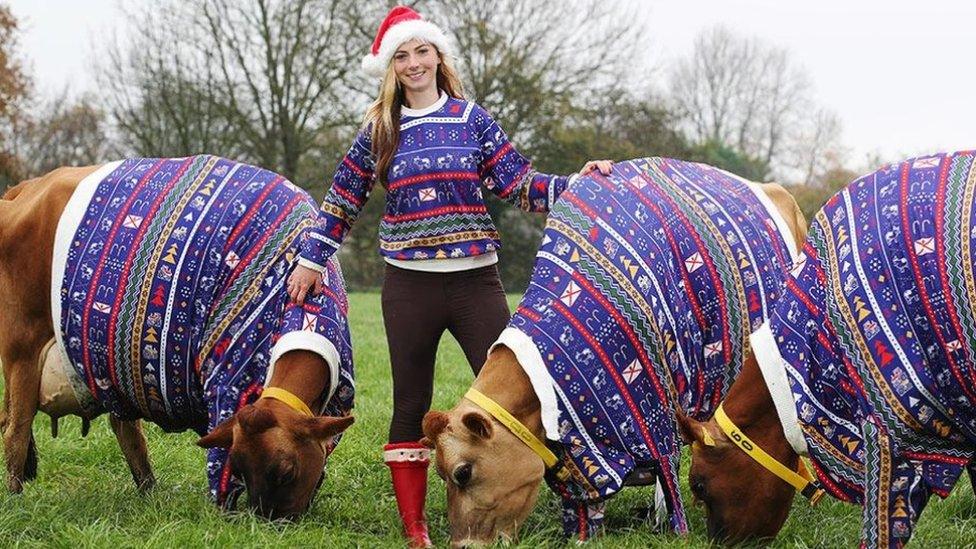The Jersey cow helping Rwandan widows rebuild their lives
- Published
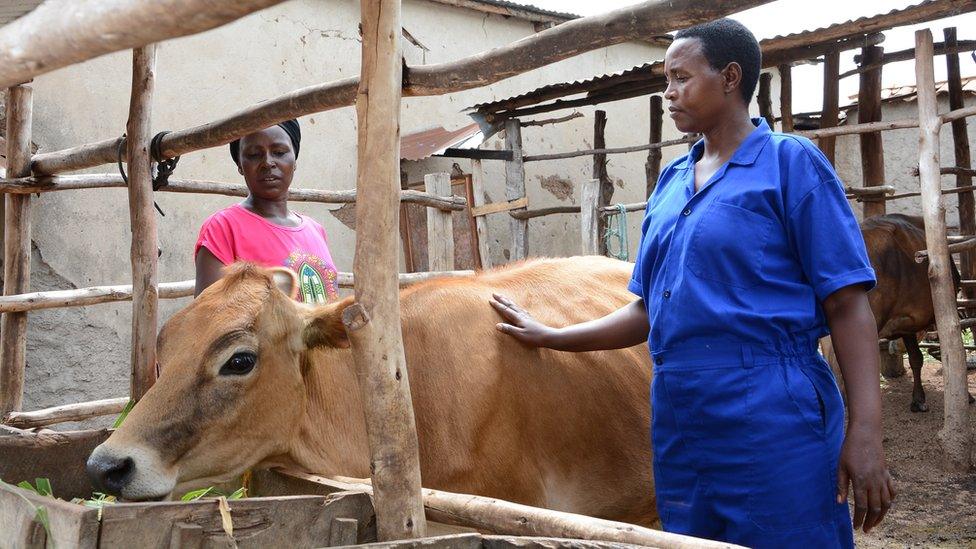
Farmers in Rwanda say the Jersey cow has helped them to rebuild their lives
A cow is transforming the lives of women by helping them to become profitable farmers.
The Jersey cow is typically found in its native home in the Channel Islands, producing some of the most nutrient-rich milk in the world.
When the island's dairy experts were asked for help in 2004 by the President of Rwanda, it was "the perfect match".
By using the Jersey cow's unique gene pool, farmers in the African country have turned poverty into profit.
In 1994 an estimated 800,000 people from the Tutsi minority were murdered in the Rwandan genocide. The killings left behind 50,000 widows, propelling thousands of women to head of the household.
Almost 10 years later, the Royal Jersey Agricultural and Horticultural Society (RJAHS) inherited 300,000 straws of cow's semen from the island's government, according to head of international dairy development at RJAHS, David Hambrook.
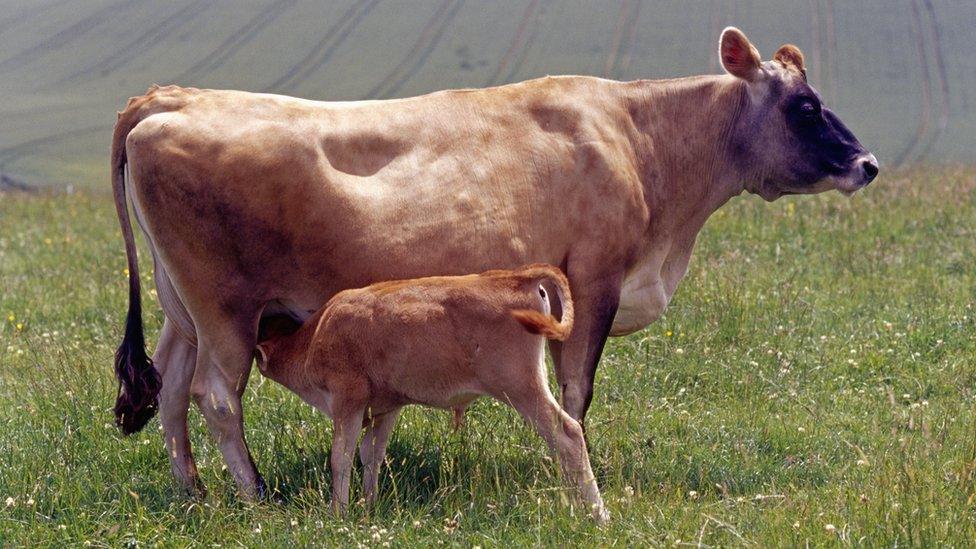
The Jersey cow has helped to rebuild Rwanda's dairy industry
The Jersey breed's successful milk-yielding characteristics, including a high nutritional value, ease of calving, and an ability to adapt to extreme climates, suggested it could help to rebuild Rwanda's dairy industry.
In 2016 an official cross-breeding programme was launched by Jersey Overseas Aid in collaboration with RJHAS and Send a Cow, a charity that supports smallholder farmers in Africa.
Five years on we hear from the women who have rebuilt their lives using the power of the Jersey cow.

'I lost my husband with one child, but now I'm a mother of many'
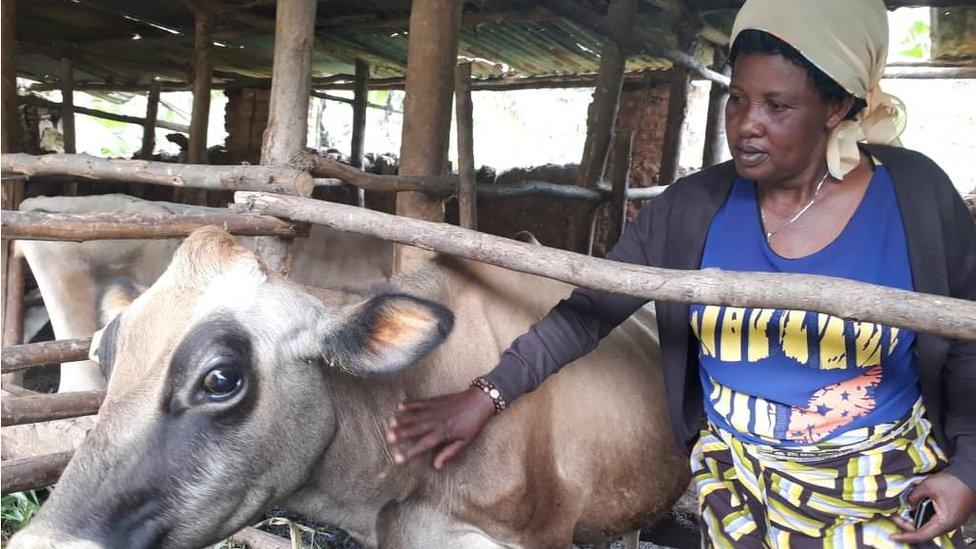
Libertha Uwantege has used her success from the Jersey cow to help others
Libertha Uwantege is 56 years old and lost her husband in the Rwandan genocide.
"Before 1994, women in Rwandan society were not considered useful people," she said.
"After the genocide I decided I was going to work hard to show people even women can improve the lives of families."
Ms Uwantege previously farmed three Friesian cows to provide for her daughter, but calves frequently died.
She now has four Jersey cows and two cross-breed Jersey/Friesian bulls.
'Dignity to women'
With the extra money these cattle bring in, Ms Uwantege cares for five orphan children she has adopted, as well as an elderly woman, all of whom live with her.
Ms Uwantege says the Jersey cow has helped to combat gender prejudice in the country.
She is now the leader of a local non-governmental organisation that tackles issues of gender and inequality in the community.
"Villagers would say 'she's going to grow small cows, even when the big cows won't work'. They discouraged me and were laughing at me.
"I'm now invited to the community meeting to teach others how to farm.
"I'm happy because I now have the fruits of my hard work - to give dignity to women in Rwandan society."

'Confidence and pride'
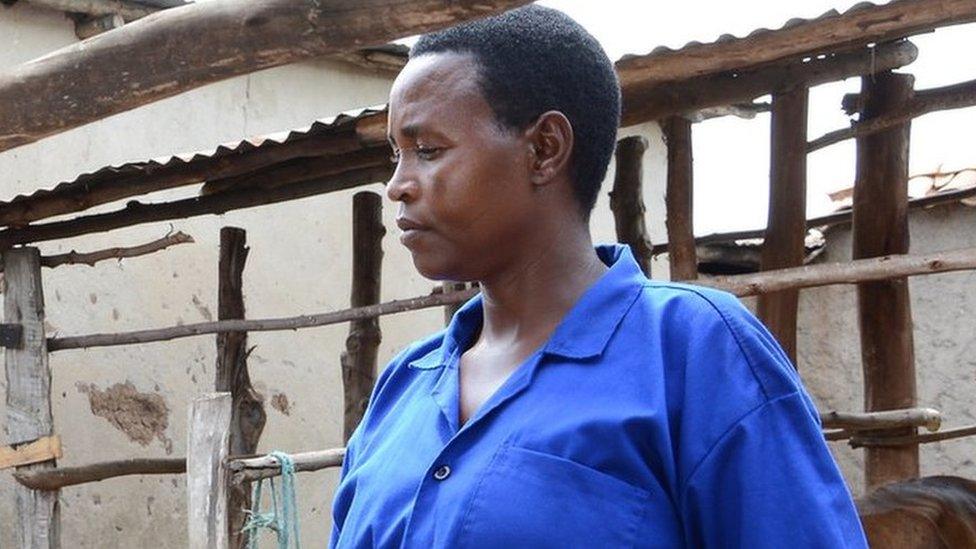
Clarisse Nyinawumuntu said she felt "empowered" by having agency in her work
Clarisse Nyinawumuntu, a mother of three, also lost her husband in the 1994 killings. She trained as a paravet through the Send a Cow charity and is now one of three female experts who support farmers rearing the Jersey cow, including herself.
"I see less health problems with Jersey cows, they are rarely sick," she said.
"Before when my cow fell sick, I looked to men to treat them and would have to pay them. Now I know how to look after and treat my cow which makes me feel empowered.
"Being a paravet has also built my confidence and pride. When I visit other farmers and advise them, they feel proud that a woman is able to advise them."

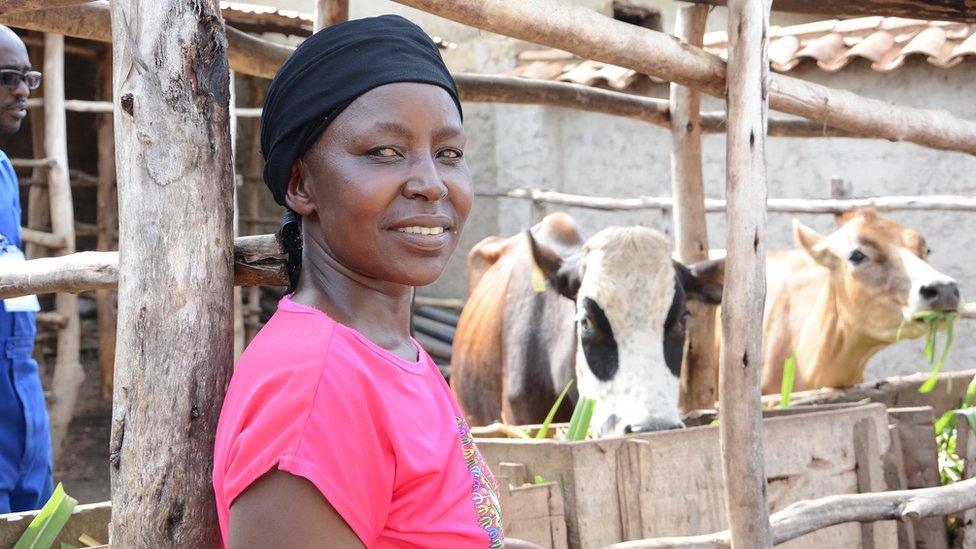
Many of the women have seen a vast improvement to their quality of life through the Jersey cow
Jeanette Kanyange, a 53-year-old widow of the genocide, has tripled her income through the Jersey breed.
She has two Jersey/Holstein Friesian cross-bred cows, including her oldest called The Famous One.
Ms Kanyange is now able to collect manure from her cows to use on her banana plantation, providing the majority of her income.
"I think that Jersey cows are easier to look after, consume less fodder and produce a better quality and creamier milk than Holstein Friesians.
"My children and nieces and nephews much prefer the Jersey milk," she said.

Follow BBC Jersey on Twitter, external and Facebook, external. Send your story ideas to channel.islands@bbc.co.uk, external
Related topics
- Published18 January 2020
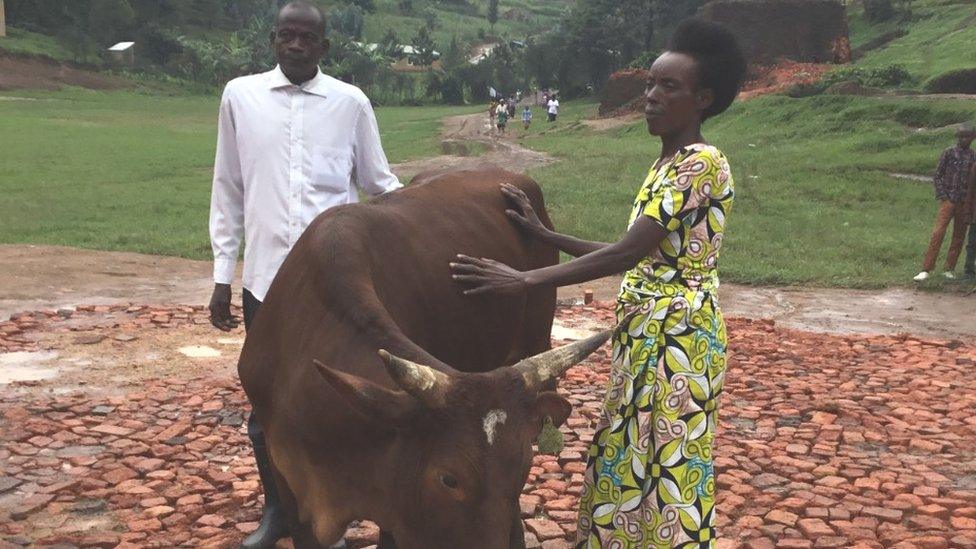
- Published18 May 2017
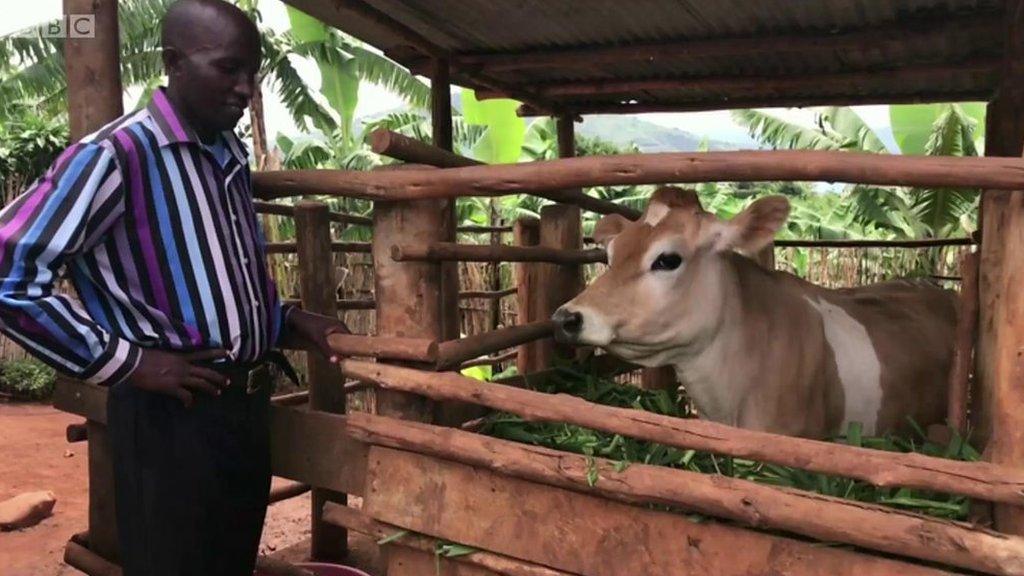
- Published10 December 2019
